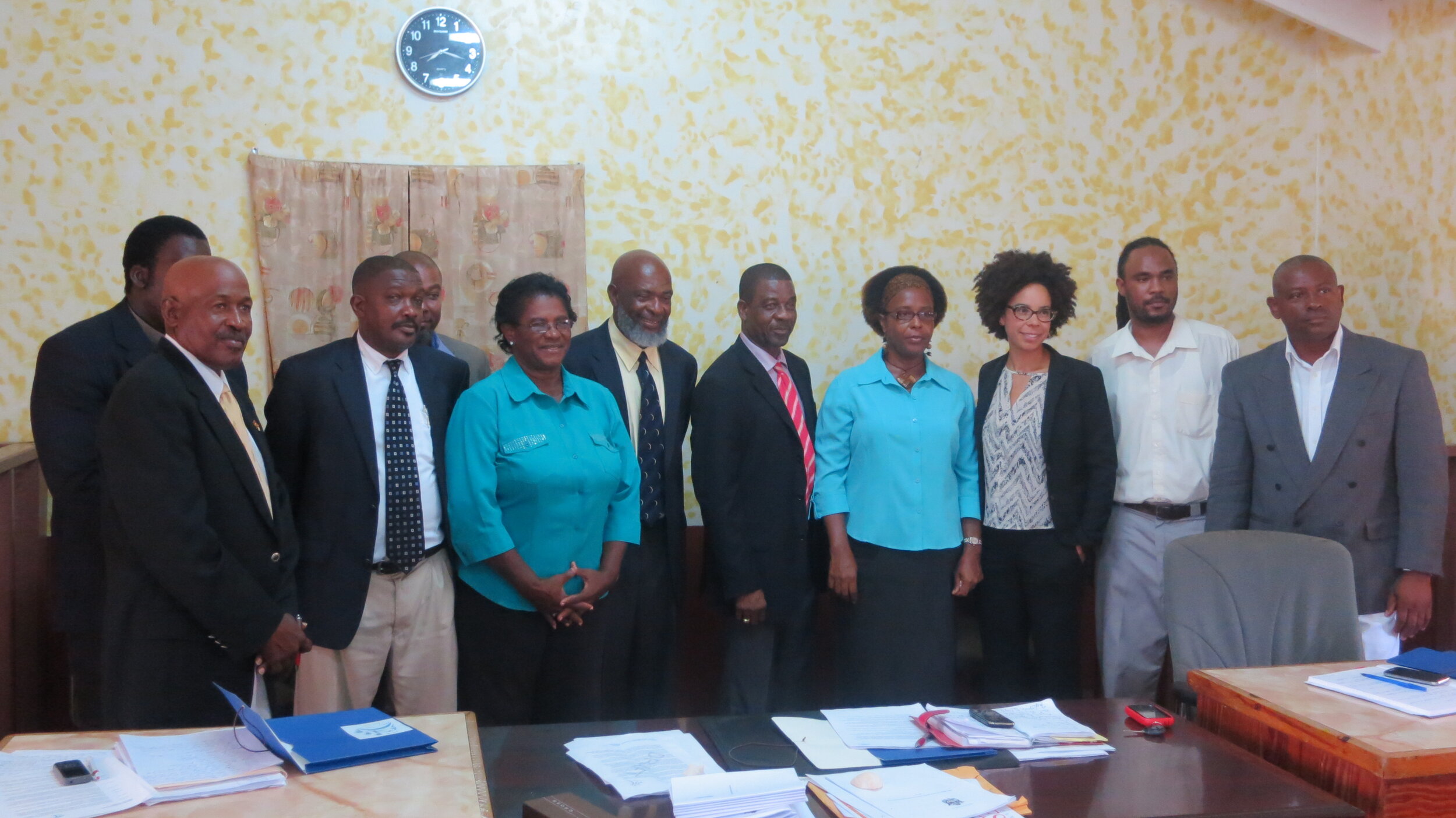Small Caribbean Island Shows Bold Ocean Leadership: Barbuda Overhauls Reef and Fisheries Management for Sustainability
Originally published on the (now archived) National Geographic blog.
August 13, 2014
On August 12th, Barbuda Council signed into law a sweeping set of new ocean management regulations that zone their coastal waters, strengthen fisheries management, and establish a network of marine sanctuaries. This comes after seventeen months of extensive community consultation and scientific research supported by the Waitt Institute. With these new policies, the small island of Barbuda has become a Caribbean ocean conservation leader and global role model.
The regulations establish five marine sanctuaries, collectively protecting 33% (139 km2) of the coastal area, to enable fish populations to rebuild and habitats to recover. To restore the coral reefs, catching parrotfish and sea urchins has been completely prohibited, as those herbivores are critical to keeping algae levels on reefs low so coral can thrive. Barbuda is the first Caribbean island to put either of these bold and important measures in place.

“This will definitely benefit the people of Barbuda, and Antigua as well. No part of this is meant to hurt fishers. It’s the reverse – ensuring that they have a livelihood that will last in perpetuity,” said Arthur Nibbs, Chairman of the Barbuda Council and Antigua and Barbuda Minister of Fisheries.
Caribbean-wide, communities are seeing declines in the health of coastal ecosystems and fish populations. This negatively impacts economies, food security, and cultures. Visionary action like that shown in Barbuda is needed to manage the ocean sustainably, profitably, and enjoyably, for this and future generations.
The coastal zones and fishing regulations reflect stakeholders’ priorities and are the outcome of a community-driven, science-based, and consensus-seeking process aiming to balance current and future needs to use ocean resources.

“This type of management must become the status quo. It has been an honor to support the people of Barbuda as they took decisive steps to conserve their reefs and fisheries, and I look forward to supporting similar efforts elsewhere,” said Ted Waitt, Founder Chairman of the Waitt Institute.
Creation of the new regulations occurred under the umbrella of the Barbuda Blue Halo Initiative, a collaboration between the Barbuda Council, Government of Antigua & Barbuda, Barbuda Fisheries Division, Codrington Lagoon Park, and the Waitt Institute. The Waitt Institute provided all of the science, mapping, and communications, offered policy recommendations, and coordinated the overall Initiative.
Also included in the regulations is a two-year fishing hiatus for Codrington Lagoon, the primary nursery ground for the lobster and finfish fisheries. The lagoon, a Ramsar wetland of international importance, is one the Caribbean’s most extensive and intact mangrove ecosystems, and home to the world’s largest breeding colony of Magnificent frigatebirds.
Most fishermen support the regulations. “Something has got to be done. Things are out of hand where fishing is concerned,” says Larkin Webber, elder Barbudan fisherman. These regulations should have happened 40 or 50 years ago. It’s overdue.”
Ayana Elizabeth Johnson, Executive Director Waitt Institute, meets with the Barbuda Council on August 12, 2014 to pass three new regulations for ocean sustainable management.
The Waitt Institute will continue to work closely with the government and people of Barbuda over the next three years to support implementation of these regulations. This will include setting up a long-term scientific monitoring program, training local staff in marine ecology and field research techniques, recommending enforcement approaches, providing needed equipment, and working with schools to develop an ocean education curriculum.
“The state of Caribbean reefs and fisheries is dire, but the policy solutions are simple,” said Ayana Elizabeth Johnson, Ph.D., Executive Director of the Waitt Institute and coordinator of the Barbuda Blue Halo Initiative. “My heart soars to think that if other islands take similarly bold steps soon, we will see reefs recover, fishers’ livelihoods improve, ecosystems become more resilient to climate change, and the Caribbean coastal way of life thrive.”
[Full regulations and other supporting documents available here.]
Map of Barbuda’s new coastal zones.



